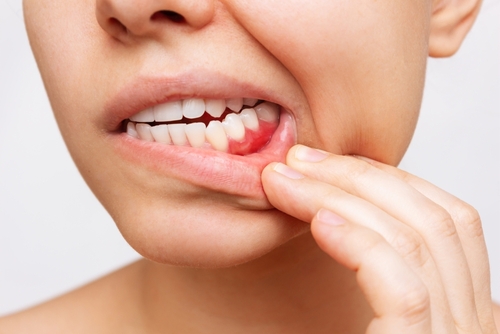Protect the Foundation of Your Beautiful Smile
Gingivitis, a common gum disease, demands attention due to its impact on oral health. Understanding its diagnosis and treatment is vital for early intervention and effective management. Our highly qualified Grand Haven, MI, dentist, Dr. John Leitner strives to help patients maintain peak gum health to ensure good oral health. Read on or call 616-842-2850 to learn more.



 Treating Gingivitis involves a multi-faceted approach aimed at reducing inflammation, eliminating dental plaque, and restoring gum health. Various treatment options include:
Treating Gingivitis involves a multi-faceted approach aimed at reducing inflammation, eliminating dental plaque, and restoring gum health. Various treatment options include: